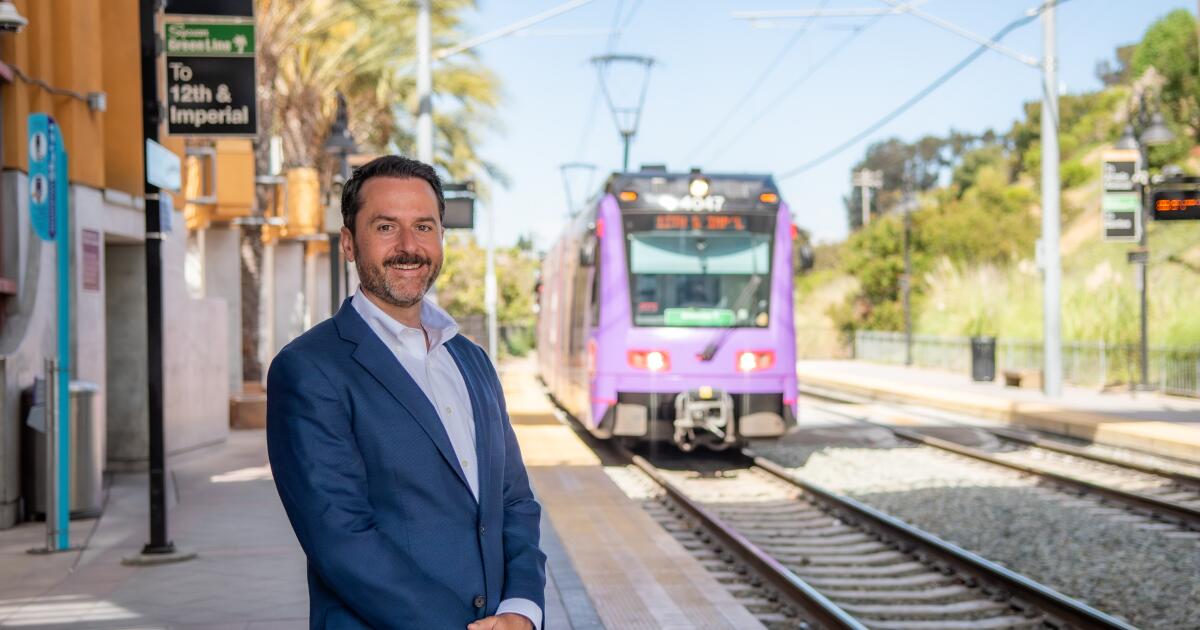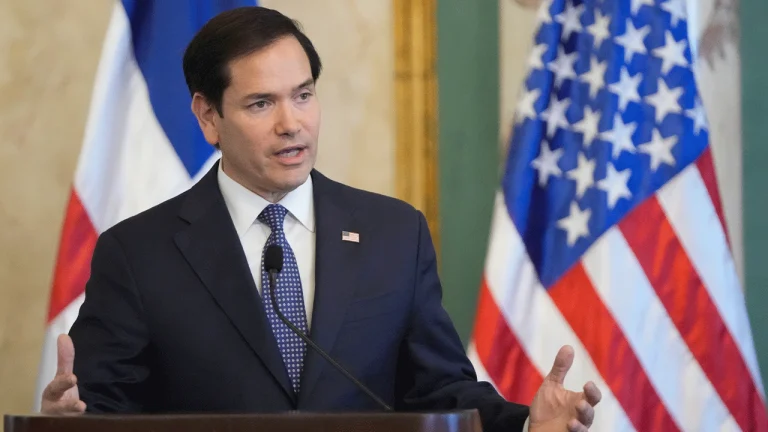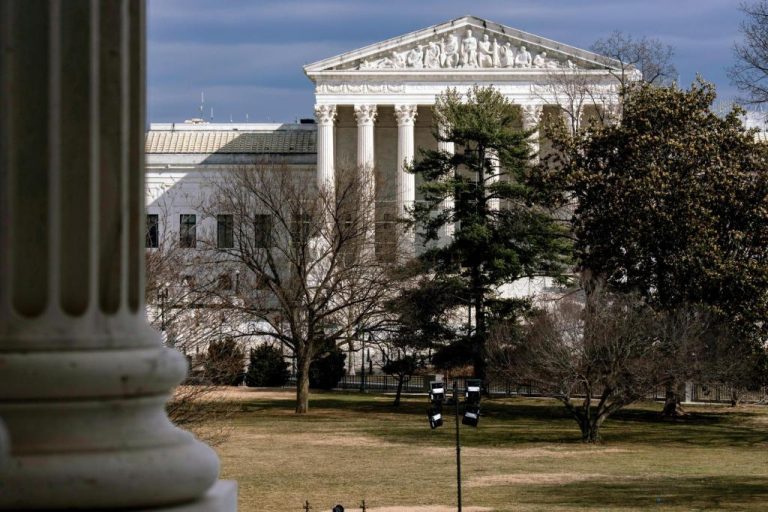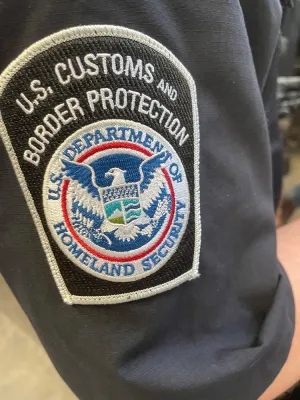
Colin Parent, a Democrat who runs the nonprofit Circulate San Diego and serves on the La Mesa City Council, is running for the open Assembly seat representing a stretch of southeastern San Diego, La Mesa, Lemon Grove and El Cajon.
To help inform voters, the San Diego Union-Tribune asked all the candidates a series of the same questions about their priorities, positions and campaigns. Their emailed answers have been lightly edited for clarity.
Why are you running, and what makes you the best candidate?
Passion for public service has been the driving force in my life. Over my two-decade career, I’ve championed solutions to our most serious problems. California faces challenges, and together we can overcome them.
I grew up in East County San Diego, becoming an Eagle Scout with Troop 362. In 2011, Gov. Jerry Brown appointed me to work on housing, homelessness and economic development. I later served as director of policy at the San Diego Housing Commission. Today, I am the head of the nonprofit Circulate San Diego, advocating for transit, affordable homes and safe streets near schools.
Eight years ago, La Mesa voters elected me to our City Council. We’ve made real progress. We doubled funding for our homeless outreach team and broke ground on our first 100 percent affordable building in decades. We fully funded our police department and established the first community oversight board.
What are the top 3 issues facing this district and California generally?
Education: Education is the most important obligation of the state of California. It is essential to growing our economy and creating opportunities for students to become productive participants in civic life.
Housing, transportation and climate: I know it looks like I’m listing three things, but these are actually all the same thing! We have a housing affordability and climate crisis. The only way we can solve it is by creating more affordable homes, near transit and near where people work. That also means building affordable homes and investing in transit and safer streets.
Public safety: We cannot educate children or grow our economy if people are not safe and do not feel safe. There is a broad majority in California that believes that public safety should get strong funding and support, while also believing in appropriate measures for accountability. I am a part of that majority.
What are the first 3 things you would do in your first term in the Legislature?
Fix the Roads Act: I’ve proposed a bill to require accountability for how local governments use the existing Senate Bill 1 funds for road repair. The Fix the Roads Act will require cities to prioritize the streets that are in the worst shape, and those where improvements can prevent crashes and save lives.
Homelessness: The biggest obstacle to solving homelessness is the shortage of affordable homes. I will support the proposal from Assemblymember Buffy Wicks for a $10 billion bond to support the construction of permanently affordable homes. Affordable housing is necessary but not sufficient, so we must also fund more mental health and addiction resources.
Housing affordability: Homeownership is out of reach for too many people. Starter homes are virtually nonexistent. I’ll propose a bill to eliminate regulatory barriers that are preventing the construction of traditionally affordable for-sale housing types like townhomes.
What would you do to curb climate change and its effects on California, including the fact that those effects are often borne disproportionately by communities of color?
As a La Mesa City Council member, I advocated for, and was able to pass, East County’s first ever enforceable Climate Action Plan. In my current day job, I work as the executive director and general counsel of Circulate San Diego, a nonprofit that works on housing and transportation policy through a climate and equity lens. I have authored numerous reports like “Climate and Equity for Homes,” pushing for climate-friendly policies like investments in public transit, and building homes near transit stations.
One of the best ways to address climate action and environmental justice is by pushing for reforms to make housing more affordable and investing in our transportation system, especially in transit.
What would you do to combat California’s housing, affordability and homelessness crises?
The homelessness crisis facing California and the entire country is a symptom of our underlying housing unaffordability. I support increasing investment in behavioral health care, but the only way to meaningfully reduce homelessness is by changing our current status of housing scarcity to one of housing abundance. Too many Californians are struggling to pay the rent and cannot imagine buying a home.
Fighting for affordability has been the focus of my entire career. I’ve been involved in housing policy at both the state and local level. As the executive director of Circulate San Diego, I lead one of the region’s foremost organizations that advocates for affordable homes. I have personally drafted legislation signed by Gov. Gavin Newsom to expand housing production for low- and moderate-income Californians. We can make real progress when we make housing policy on a statewide basis. That is why I am running for state Assembly.
Do you personally support Proposition 1? Why or why not?
I support Proposition 1. People are suffering from untreated mental illness and addiction every day on the streets of California, and we must connect them to the behavioral health care they need.
Proposition 1 will allow the state to bond against existing tax revenue to provide thousands of additional inpatient beds for people seeking mental health or addiction treatment as well as thousands of additional outpatient opportunities statewide. Proposition 1 will also provide more supportive housing units for homeless people with wraparound services. Proposition 1 is an excellent first step in addressing the behavioral health crisis, and I support it.
Do you support or oppose stricter gun laws and background checks? Which, and if you support them, to what extent?
I have been a strong supporter of gun-violence prevention efforts throughout my career in politics and public policy. Most recently, I voted to direct La Mesa staff to prepare a safe storage ordinance that is currently being developed and expected for adoption later this year.
The biggest barrier to additional action on gun violence protection is activist federal judges who keep overturning reasonable laws passed by California and other states. To combat this threat, California must get creative and pursue a legal strategy to fight the radical judges who are preventing us from passing laws to protect people.
Do you support or oppose asking voters to roll back elements of Proposition 47, by which they recategorized some nonviolent crimes as misdemeanors 10 years ago? Why or why not? Do you personally support or oppose making changes to Prop. 47?
I support asking voters to roll back elements of Proposition 47. I think that Proposition 47 was a well-intentioned reform that has failed in practice. Californians were right to re-examine long and expensive prison sentences, but we still need effective deterrence where criminals face sanctions that are swift, certain and fair. Prosecutors need greater discretion to charge repeat criminals with felonies instead of misdemeanors when justified. The threat of felony prosecution is a key reason why many people choose to enter court supervised addiction treatment. Proposition 47 removed that incentive, and I support reasonable reforms to bring it back.
Californians will vote this year on whether to repeal Proposition 8, a 2008 same-sex marriage ban that has been unenforceable since the Supreme Court ruling legalized same-sex marriage but that remains on the books. Will you personally vote for or against repealing Prop. 8?
I strongly support overturning Proposition 8. Repealing Proposition 8 will send the message that California supports everyone’s right to marry a partner of their choice.
In the summer of 2008, the California Supreme Court issued a ruling allowing same-sex marriages before the adoption of Proposition 8 later that year. During that short window, my friends Brian and Robbie got married at the County Administration Building. They asked me to join them as their witness (they wanted a lawyer there in case there was any trouble). Fortunately, county staff followed the court’s orders, and I was honored to witness their marriage.






